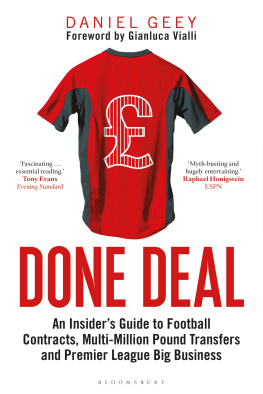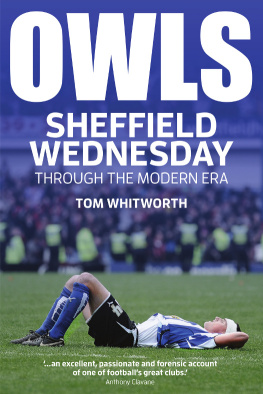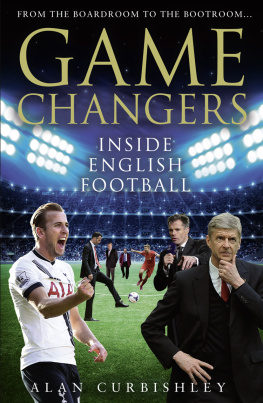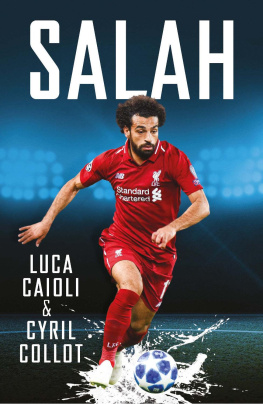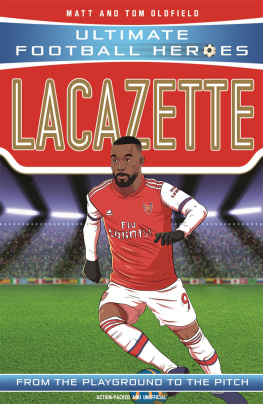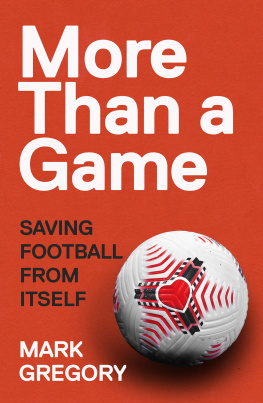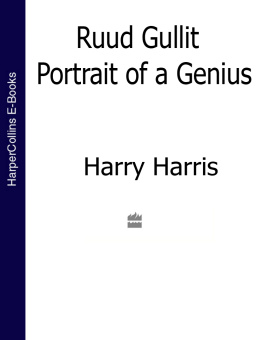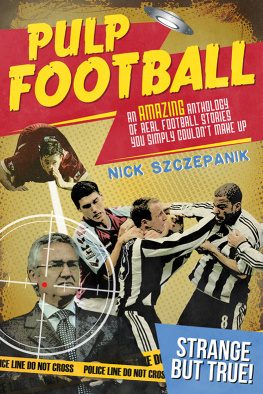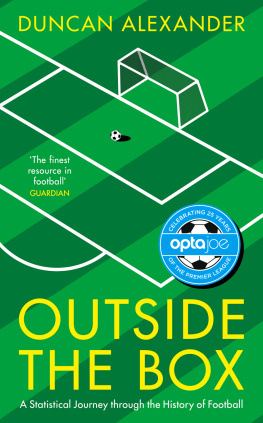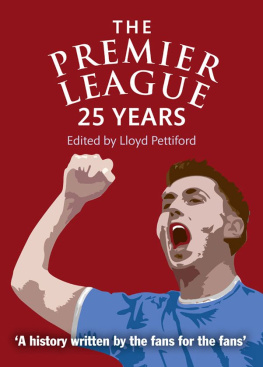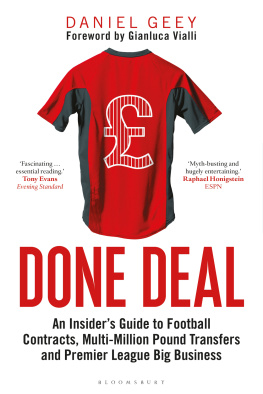
To Issie and Livi:
Keep your eyes on the stars
and your feet on the ground


PRAISE FOR DONE DEAL
If you want to know and understand how football really works, this is the book for you.
Guillem Balagu, Sky Sports
Its a pleasure to work with Daniel and he has a great understanding of the football industry. His book should be a must read for football fans.
Freddie Ljungberg
Fascinating, brilliant and mind-boggling at times, this book takes you behind the scenes of football. What happens on the pitch is only part of the story. Done Deal is essential reading if you want to get close to the full picture.
Tony Evans, Evening Standard and ESPN
A myth-busting and hugely entertaining look at the ever more complex machinations of the beautiful game. Essential.
Raphael Honigstein, ESPN
Undoubtedly the leader in his field, with Done Deal Daniel has produced a fascinating and comprehensive insight into the global business of football and the ever-changing landscape of the worlds beautiful game.
David Dale, CEO, Football Aid and Field of Dreams
[Done Deal] is a testament not only to Daniels vast knowledge on his subject, but also to his ability to present even the most complex ideas in a clear and vivid way.
Gianluca Vialli
There are very few people who are as up to speed on the most pressing legal topics within the football industry as Daniel Geey.
Chris Pearlman, COO Swansea City FC
A must read for anyone looking to work in football.
Ehsen Shah, Managing Director, B-Engaged Ltd
A uniquely insightful and accurate reflection of modern football and its exciting evolution.
Fausto Zanetton, Founder and CEO, Tifosy Ltd
Contents

I signed my first professional football contract in 1980. I was 16, the club was Cremonese and the only advice I received was from the AIC, the Italian version of the Professional Footballers Association. In those days, football was a self-sustaining ecosystem: the money stayed within the game, and there was no involvement from lawyers, banks or agencies even agents were rare. Over a decade later, in 1992, I signed for Juventus from Sampdoria. Again, there was no agent and no lawyer: Paolo Mantovani, Sampdorias president, asked what was important to me and then negotiated directly with Juventus on my behalf, securing the contract that would see me leave his club.
Around the mid-1990s, Englands Premier League was breaking new ground: football was being packaged into a premium media product and sold globally. Money started flowing into the game. Many of my peers took on agents and lawyers to negotiate commercial deals and transfers on their behalf. For my final transfer as a player, to Chelsea in 1996, I took on my first agent. It was a huge learning curve for all of us as players, and we had to start thinking about ourselves in an entirely different way as brands, media products, commodities to be bought and sold.
Over 20 years on, the football world is unrecognisable. The revenues from broadcasting rights have brought more money into the game than ever before, driving transfer prices, player salaries, sponsorship deals and commercial revenues to new levels. In this new world, it would be unimaginable for a young footballer to sign a contract at a new club or their current one without the help of their managers, agents, lawyers, and possibly a marketing/PR or image rights representative. Even more unthinkable would be a 28-year-old striker, with 59 caps for his country, trusting his club president to negotiate his terms with a buying club.
At the top levels of todays game, agents, lawyers, banks, marketing and PR agencies have all carved out considerable influence. The introduction of these industries and their ways of working have largely benefitted the sport and the players: standards have risen in terms of financial rigour, commercial best practice and legal protection for athletes with very short careers. That having been said, no transfer window goes by without a few sensational stories in the press about who really benefits from the mind-blowing sums of money involved raising the question of what is going on behind closed doors and whether its all above board.
I first met Daniel through a mutual friend, when he asked if I would be interested in getting involved in Football Aid, the charity he supports. Since then, I have got to know Daniel well, and always admired him as an authority on the legalities and business of sport. This book is a testament not only to Daniels vast knowledge of his subject, but also to his ability to present even the most complex ideas in a clear and vivid way. I cannot think of a better person to reveal the inside story of this fascinating industry.
Luca Vialli
How we consume football has changed dramatically over the years. When I was growing up in the 1980s, watching live football was a novelty. Only the occasional game was broadcast on television and, in contrast to today, few column inches were devoted to football. This meant that the local newspapers such as the Liverpool Echo and Daily Post were my main source of information two pages on a normal day and a few extra on match and post-match days and I devoured every bit of football news I could.
Transfer gossip was very much in its infancy. Then came Ceefax, a television text information service, and suddenly there were up to 10 pages of football information per day on TV. The traditional rush home after school to grab the remote control, read Ceefax pages 302312 and discover that Liverpool were linked to a particular player and how much he was going to cost was a revelation. Coming home to the news that Roy Keane had signed for Manchester United was a particularly dark day. This was my generations internet, the first baby steps into the digital era.
By then, the World Cup was also very much front and centre. Discovering new players and their skills at major tournaments was an eye-opener and made me aware of a wider world of football, featuring exotic players and leagues.
By the time I was going to most Liverpool home games, the novel way of getting the best transfer gossip was through premium-rate phone numbers. No doubt prompted by the small fortune these lines were costing, my Dad became an early adopter and signed up to one of the first forms of the internet. Rather slow and making strange noises, the modem offered a constantly updated dose of football news and discussion forums.
Football became all-encompassing. During family dinners it was the glue of our conversation; Mum (and sometimes Dad!) spoke the most sense. We debated tactics, managers, personalities, games, rivals and history.
Then I attended university, and moved on to getting my daily fix from football news aggregator NewsNow. I even had the opportunity to write). This was the first indication that I could combine my two passions: football and law.
I soon found myself in an enviable position. Rather than just consuming football (which by now had become a major component of the global entertainment industry), I was able to offer my own perspective on football, blogging on issues and in turn amplifying my thoughts through a variety of retweets, internet searches, and Facebook and Instagram posts.

